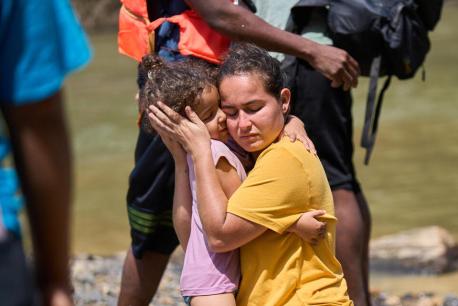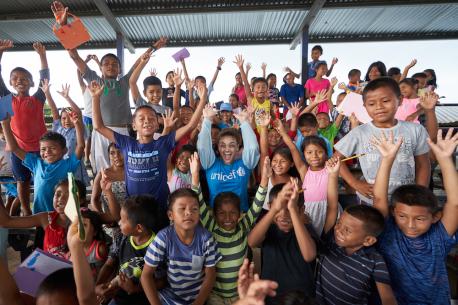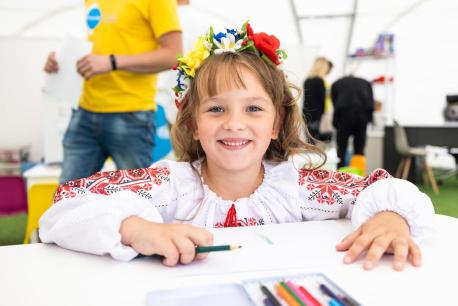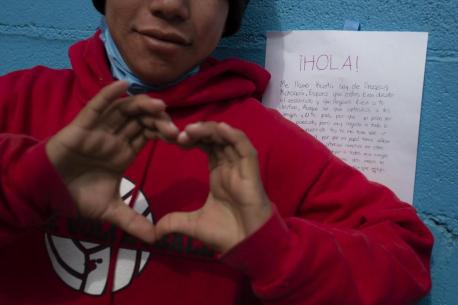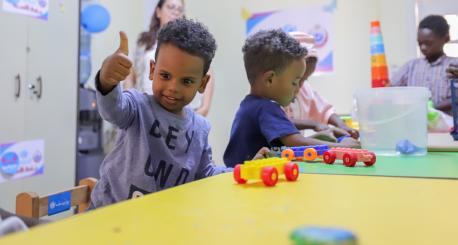
Child-Friendly Spaces
Emergencies are disorienting and traumatizing, especially for children. Providing opportunities for kids to gather in a safe space and play with other kids — away from the danger and chaos of conflict or other crisis — offers much needed protection and comfort. A look at why child-friendly spaces are such an important part of virtually every UNICEF emergency response.
The UNICEF child-friendly space: a place to play, learn and feel safe
In emergencies, UNICEF works with partners to deploy a number of relief measures, like rushing medicines and other emergency supplies to impacted areas, vaccinating people to prevent disease outbreaks and making sure there's enough safe water.
Another key component of a UNICEF emergency response: the child-friendly space.
The purpose of a child-friendly space is to allow children who are caught in a crisis to gather in a safe environment and get back to being kids.
The healing power of interacting with peers and getting back into a routine
Making art or music or just playing with toys helps create a sense of normalcy. Experts say that goes a long way toward minimizing the effects of a traumatic experience, like witnessing violence, losing loved ones or seeing one's home destroyed by shelling or a big storm.
A child-friendly space is also where vulnerable children and families can go to get health care, counseling and other services, including protection from violence, exploitation and abuse.
The child-friendly space as temporary classroom
In a crisis, children are often cut off from school; getting out-of-school kids back to learning is always a top priority. So a UNICEF child-friendly space will often double as a temporary classroom or an informal learning space.
"We see this in disasters all over the world," UNICEF USA President and CEO Michael J. Nyenhuis explains. "When kids fall out of school, some of them never come back again. So a key part of the work we're doing in these child-friendly spaces is to continue some basic education — literacy and numeracy — to keep those children moving forward so that when schools do reopen they're not behind."
To be able to get back into a regular routine alongside peers is a great way to counter feelings of fear or uncertainty. And while children are busy learning and playing, parents and caregivers get a chance to rest and regroup knowing the kids are safe.
Here's a look at some UNICEF child-friendly spaces around the world:
Ukraine
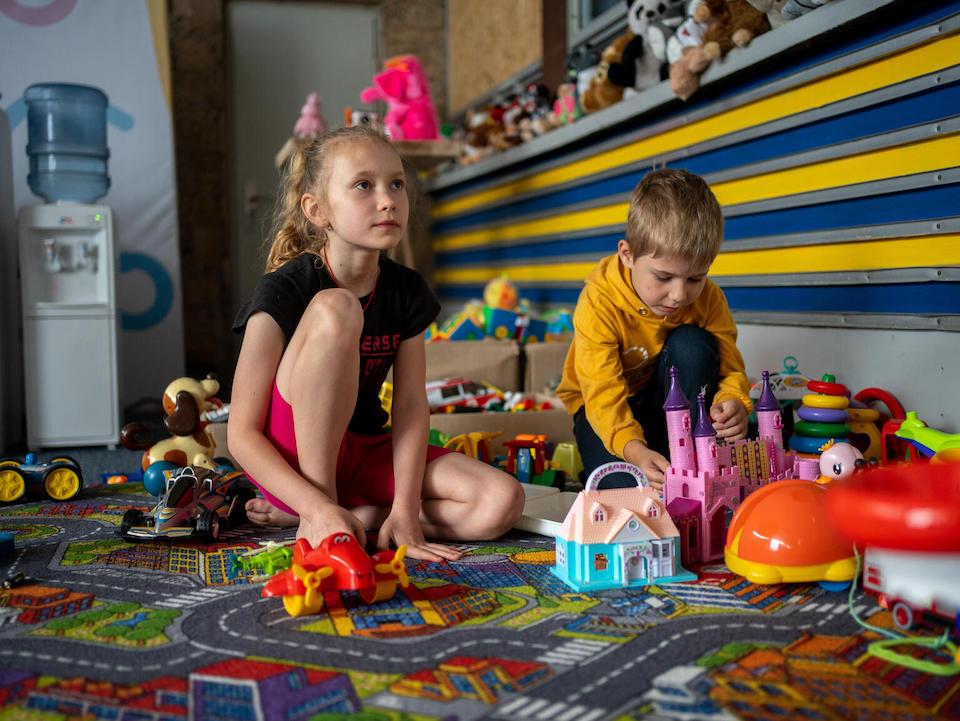
Child-Friendly Spaces are a feature of many Spilno centers UNICEF helped set up and continues to staff across Ukraine to assist children and families impacted by the war. Above, two children play at a Spilno located inside a railway station in Mykolaiv.
Child-Friendly Spaces were also a standard feature at dozens of Blue Dot refugee support hubs set up by UNICEF and UNHCR, in collaboration with local authorities and other partners, to assist women and children who were fleeing to neighboring countries.
Democratic Republic of the Congo
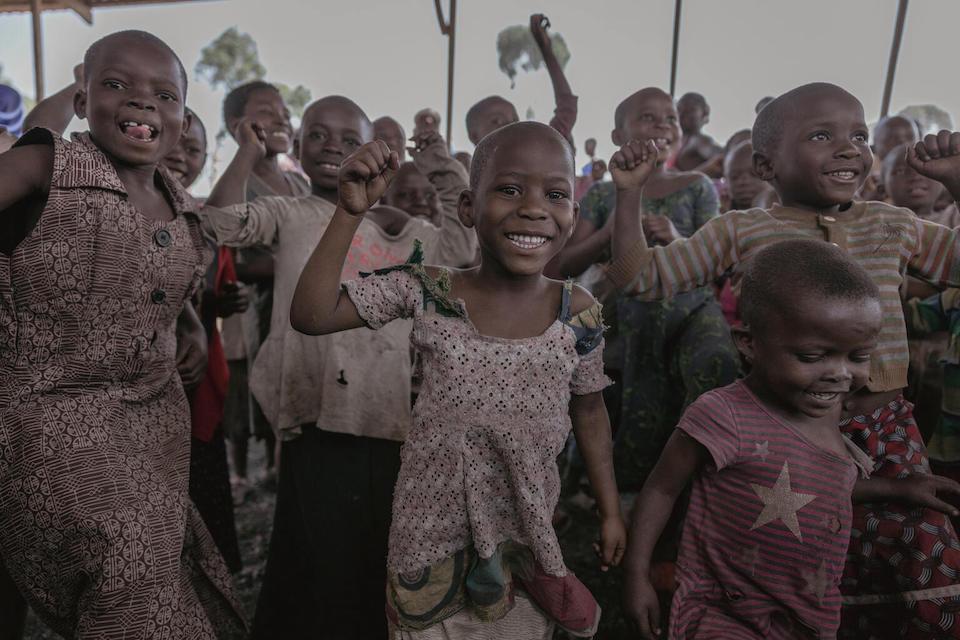
Children play in a child-friendly space set up by UNICEF and partners at the Rusayo camp, Nyirangongo territory, north of the city of Goma, DRC. The facility is one of over a dozen that have been established across eight different camps in the area to assist vulnerable families impacted by armed conflicts. UNICEF-supported staff are there to help trace parents of unaccompanied or separated children and provide psychosocial support and other services, including to women and girls who are survivors of gender-based violence.
Türkiye
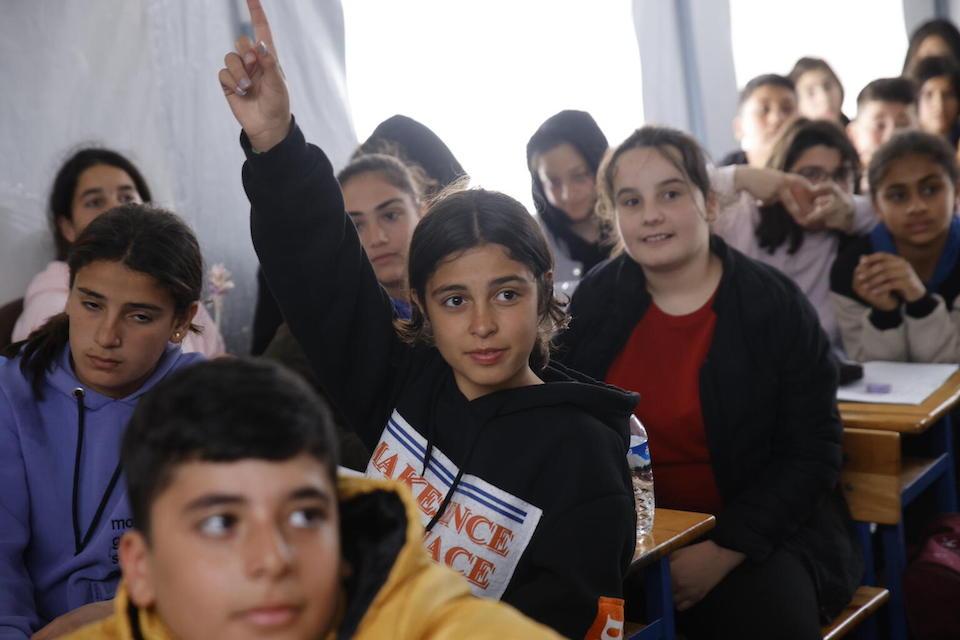
After a massive earthquake devastated parts of Türkiye and Syria in February 2023, UNICEF quickly established child-friendly spaces next to temporary housing for families who had lost everything. Above, students living at the Orhanli camp for displaced families in Hatay attend class under a tent. When disasters strike, providing ways for kids to continue their education is always a UNICEF priority.
Egypt
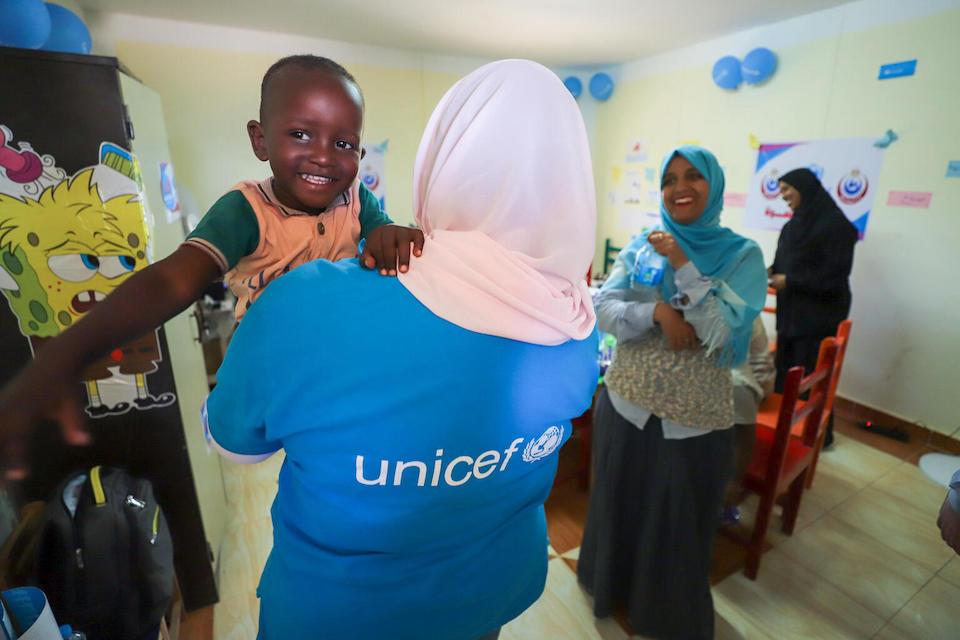
As conflict spread across Sudan in April 2023, UNICEF worked quickly with its partners to open a Child-Friendly Space inside the Karkar bus station near Aswan, southern Egypt, to support children and families who were fleeing across borders to escape the danger. Within a few weeks of its opening, the center had served over 2,000 children.
Chad
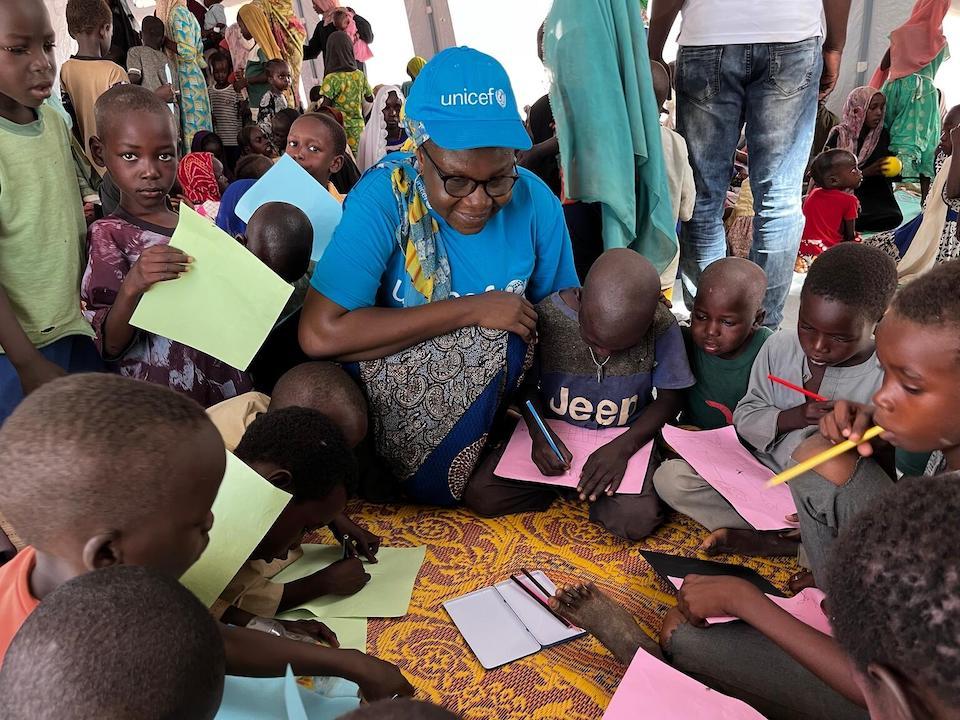
While some Sudanese refugees fled to Egypt, others fled to Chad. Above, a UNICEF child protection officer joins young refugees from Sudan for a group activity inside a child-friendly space at a camp in Farchana, Chad.
Uganda
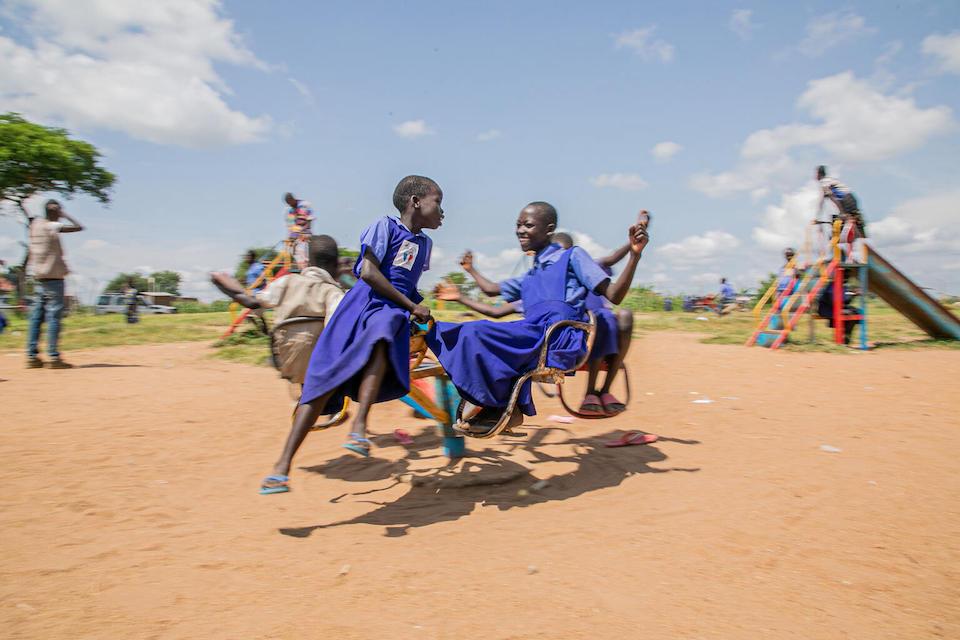
Child-friendly spaces often operate outdoors. Above, refugees from South Sudan play outside the Bongilo Early Childhood Development Center in Obongi District, Uganda, where vulnerable children and their families — including those from the host community — can access psychosocial support services and where staff facilitators, caseworkers and social workers organize group activities. The facility is part of a broader government-led program aimed at strengthening child protection for all children in the country.
Iraq
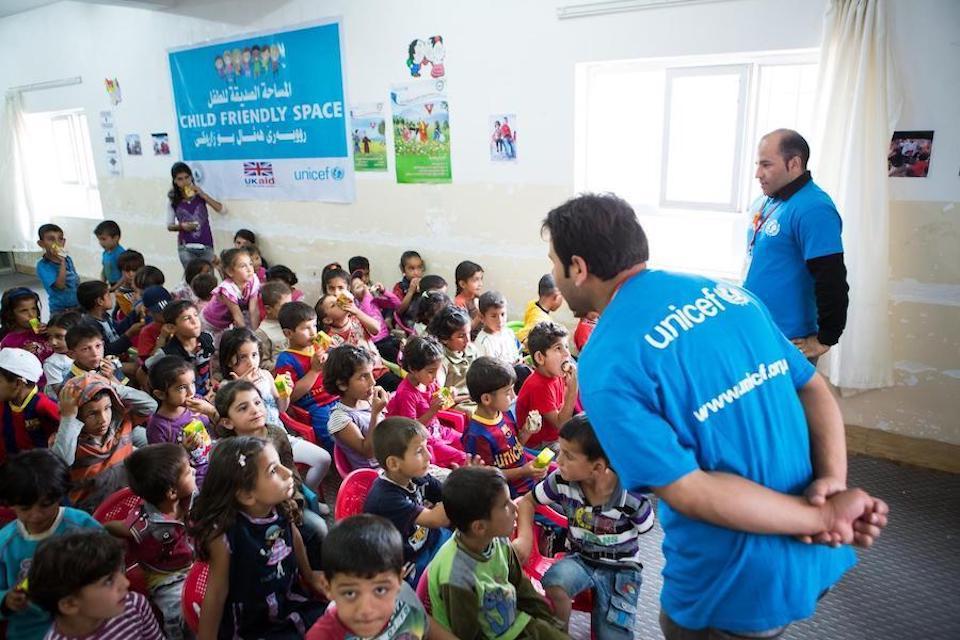
A UNICEF staff member engages children at a tented child-friendly space at the Domiz refugee camp in northern Iraq, home to refugees fleeing the war in Syria. Having a chance to interact with one's peers in a safe space helps children start to recover from trauma.
Mali
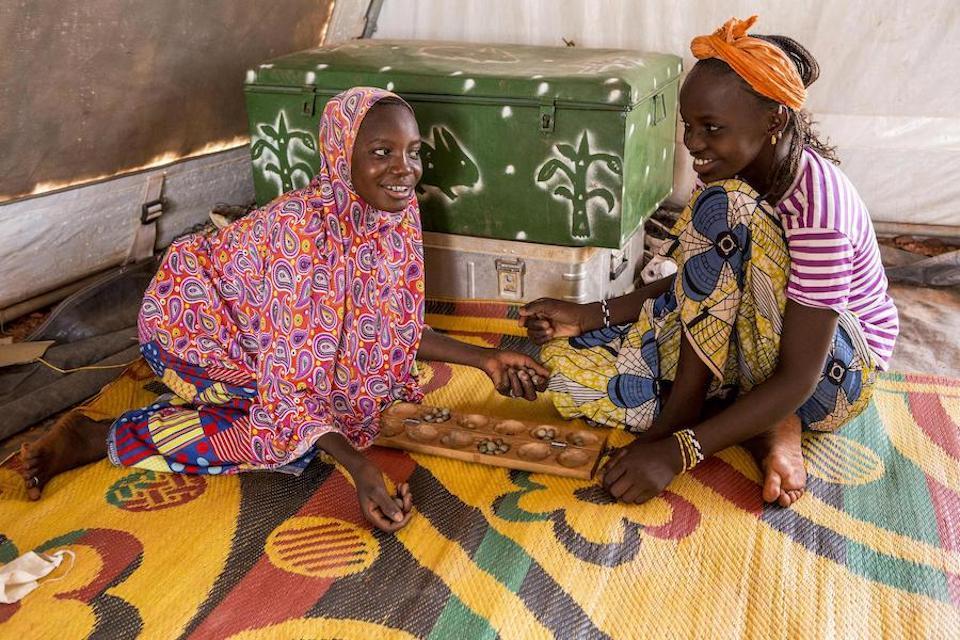
Two friends play a traditional game at the UNICEF-supported child-friendly space at the Socoura camp for displaced families in Mopti, central Mali.
Philippines
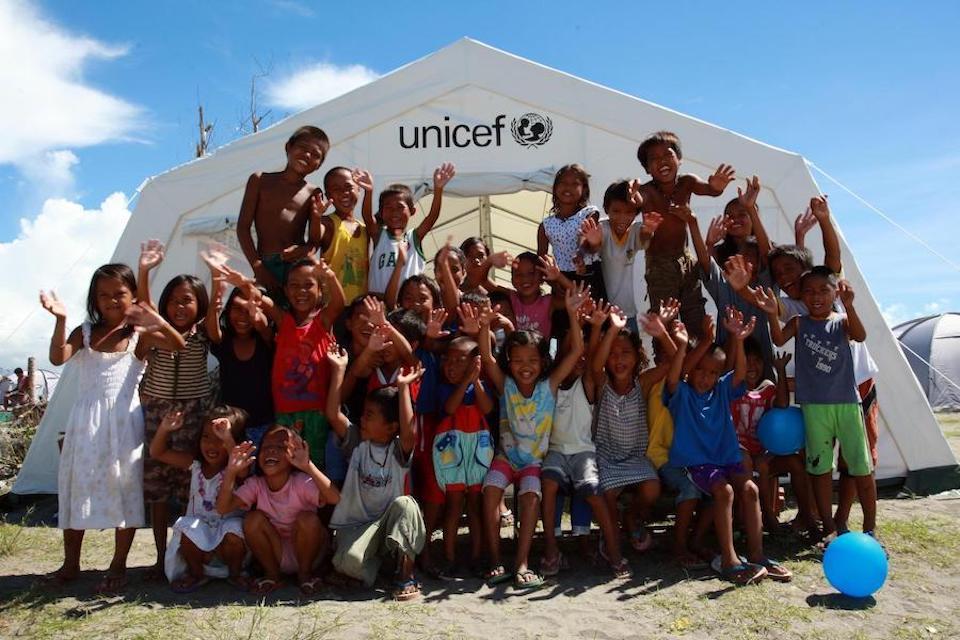
Kids gather outside a tent serving as a UNICEF-supported child-friendly space in the town of Tanauan, in Leyte province, eastern Visayas region of the Philippines — one of the areas hit hardest by Typhoon Haiyan. Establishing safe spaces for children whose homes and schools were damaged in the storm was a key part of UNICEF's emergency response, which also included delivering clean water and hygiene kits, screening children for malnutrition and reunifying children who had become separated from their families.
Learn more about what UNICEF does to respond to emergencies, delivering lifesaving support to vulnerable children and families.
Help UNICEF reach more children in need. Unrestricted donations help UNICEF stay flexible and respond quickly as new crises occur. Donate today.
